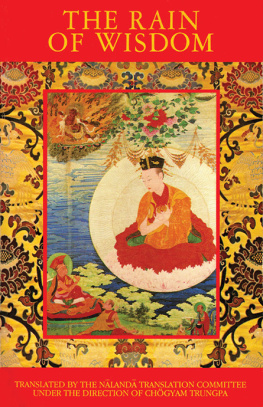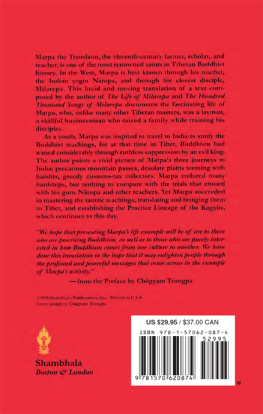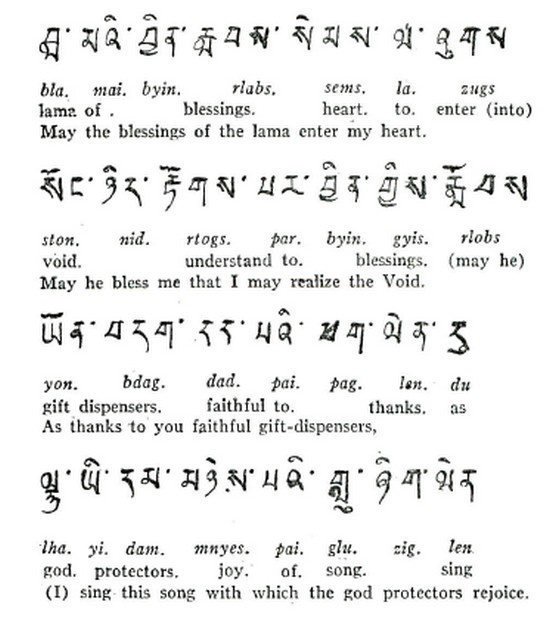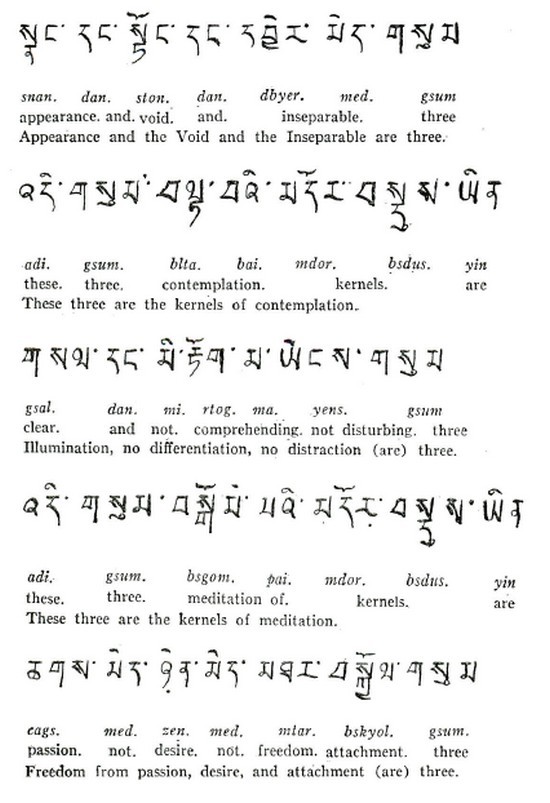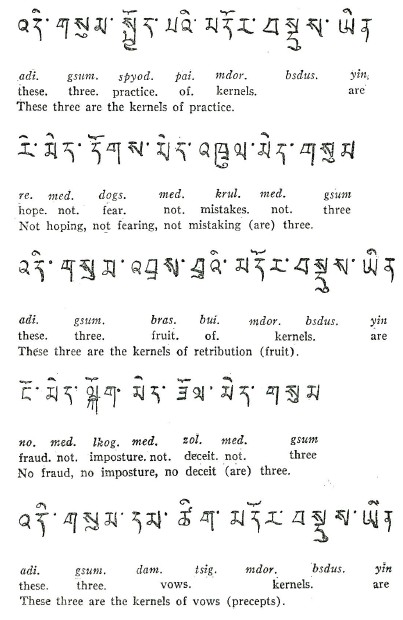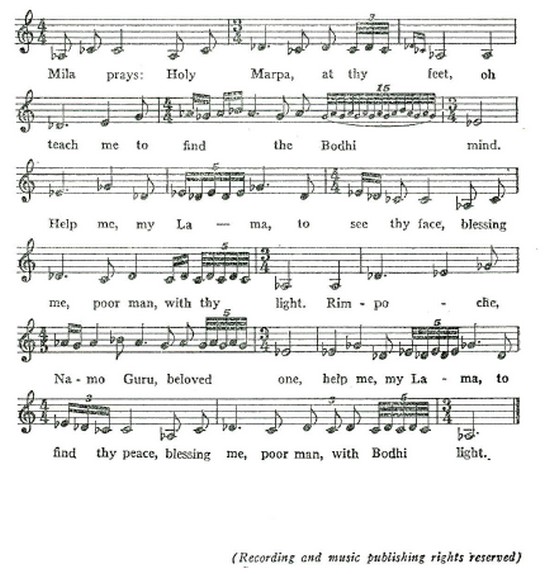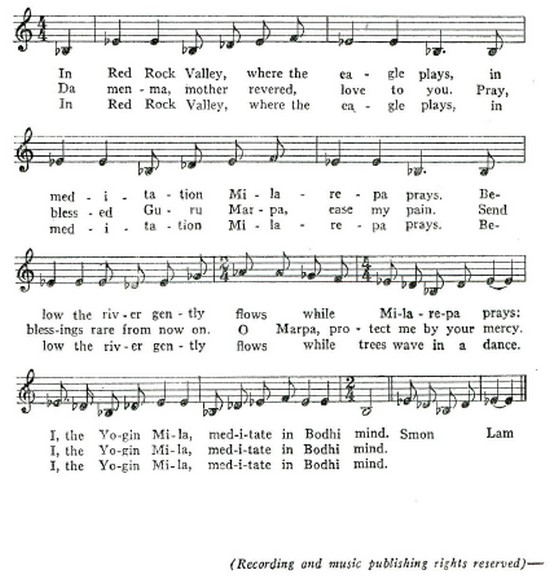Gordon - The Hundred Thousand Songs : Selections from Milarepa Poet?Saint of Tibet
Here you can read online Gordon - The Hundred Thousand Songs : Selections from Milarepa Poet?Saint of Tibet full text of the book (entire story) in english for free. Download pdf and epub, get meaning, cover and reviews about this ebook. City: New York, year: 1961, publisher: Tuttle Publishing, genre: Religion. Description of the work, (preface) as well as reviews are available. Best literature library LitArk.com created for fans of good reading and offers a wide selection of genres:
Romance novel
Science fiction
Adventure
Detective
Science
History
Home and family
Prose
Art
Politics
Computer
Non-fiction
Religion
Business
Children
Humor
Choose a favorite category and find really read worthwhile books. Enjoy immersion in the world of imagination, feel the emotions of the characters or learn something new for yourself, make an fascinating discovery.
- Book:The Hundred Thousand Songs : Selections from Milarepa Poet?Saint of Tibet
- Author:
- Publisher:Tuttle Publishing
- Genre:
- Year:1961
- City:New York
- Rating:4 / 5
- Favourites:Add to favourites
- Your mark:
The Hundred Thousand Songs : Selections from Milarepa Poet?Saint of Tibet: summary, description and annotation
We offer to read an annotation, description, summary or preface (depends on what the author of the book "The Hundred Thousand Songs : Selections from Milarepa Poet?Saint of Tibet" wrote himself). If you haven't found the necessary information about the book — write in the comments, we will try to find it.
Abstract: Tibet, remote and inaccessible, is less known to the western world for its literary than its artistic contributions to Oriental culture. Nevertheless, it has produced a literature of enduring beauty and significance, the supreme achievement of which is the poetry of Milarepa, its greatest poet and saint. This book indicates in its poetic exaggeration that, to the Tibetans, his poetry contains all earthly and celestial wisdom. It is from this masterpiece that the selections for the present volume have been made?songs in which Milarepa describes his life in the solitude of mountain glaciers
Gordon: author's other books
Who wrote The Hundred Thousand Songs : Selections from Milarepa Poet?Saint of Tibet? Find out the surname, the name of the author of the book and a list of all author's works by series.










